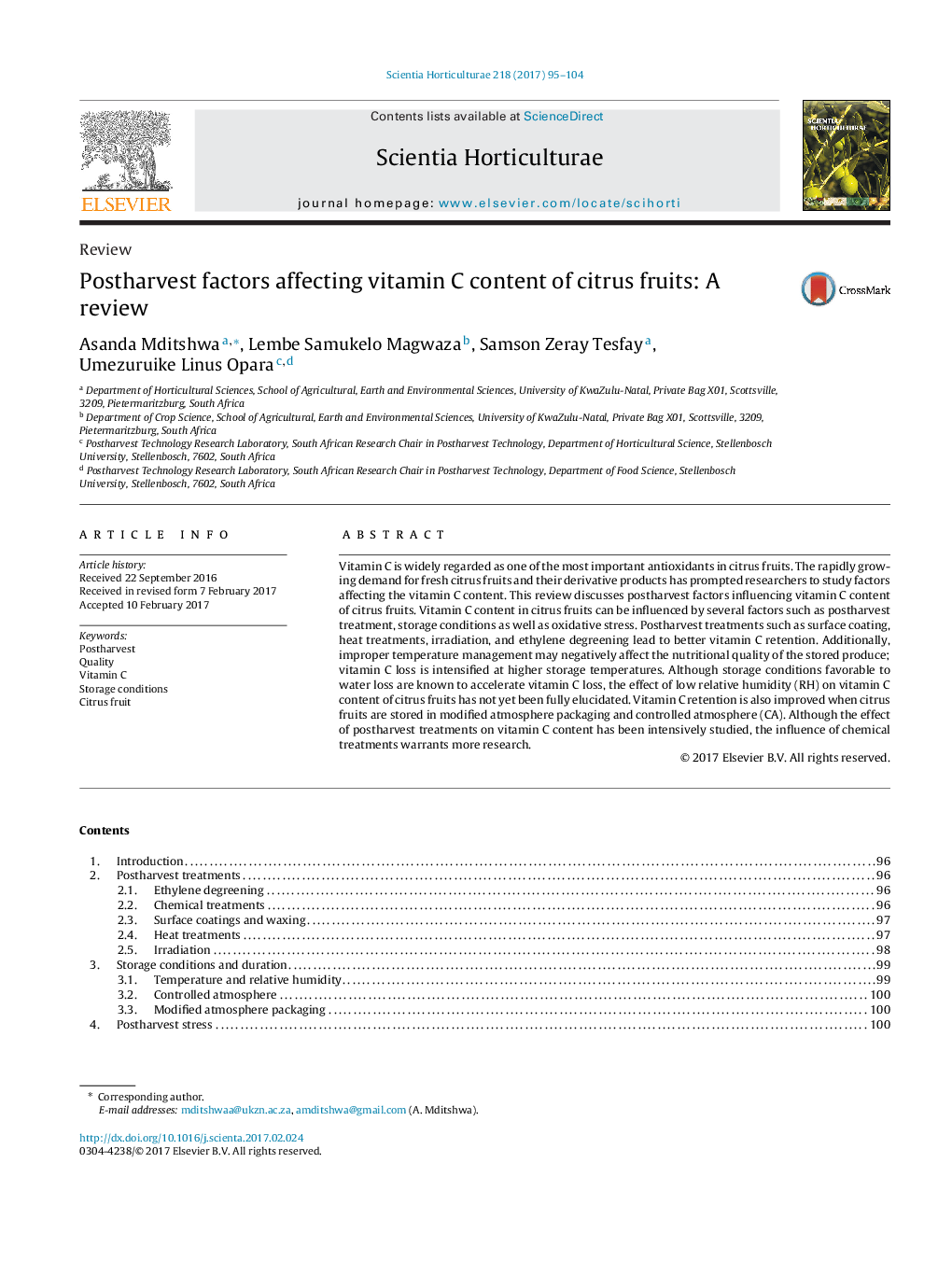| Article ID | Journal | Published Year | Pages | File Type |
|---|---|---|---|---|
| 5769532 | Scientia Horticulturae | 2017 | 10 Pages |
â¢Vitamin C content of citrus fruits is influenced by several postharvest factors.â¢Postharvest treatments such as surface coating, heat treatments, irradiation, and ethylene degreening improve vitamin C retention during storage.â¢Poor cold chain management may negatively affect vitamin C content of citrus fruits.â¢There is a research gap on the impact of chemical treatments on vitamin C content of citrus fruits.
Vitamin C is widely regarded as one of the most important antioxidants in citrus fruits. The rapidly growing demand for fresh citrus fruits and their derivative products has prompted researchers to study factors affecting the vitamin C content. This review discusses postharvest factors influencing vitamin C content of citrus fruits. Vitamin C content in citrus fruits can be influenced by several factors such as postharvest treatment, storage conditions as well as oxidative stress. Postharvest treatments such as surface coating, heat treatments, irradiation, and ethylene degreening lead to better vitamin C retention. Additionally, improper temperature management may negatively affect the nutritional quality of the stored produce; vitamin C loss is intensified at higher storage temperatures. Although storage conditions favorable to water loss are known to accelerate vitamin C loss, the effect of low relative humidity (RH) on vitamin C content of citrus fruits has not yet been fully elucidated. Vitamin C retention is also improved when citrus fruits are stored in modified atmosphere packaging and controlled atmosphere (CA). Although the effect of postharvest treatments on vitamin C content has been intensively studied, the influence of chemical treatments warrants more research.
